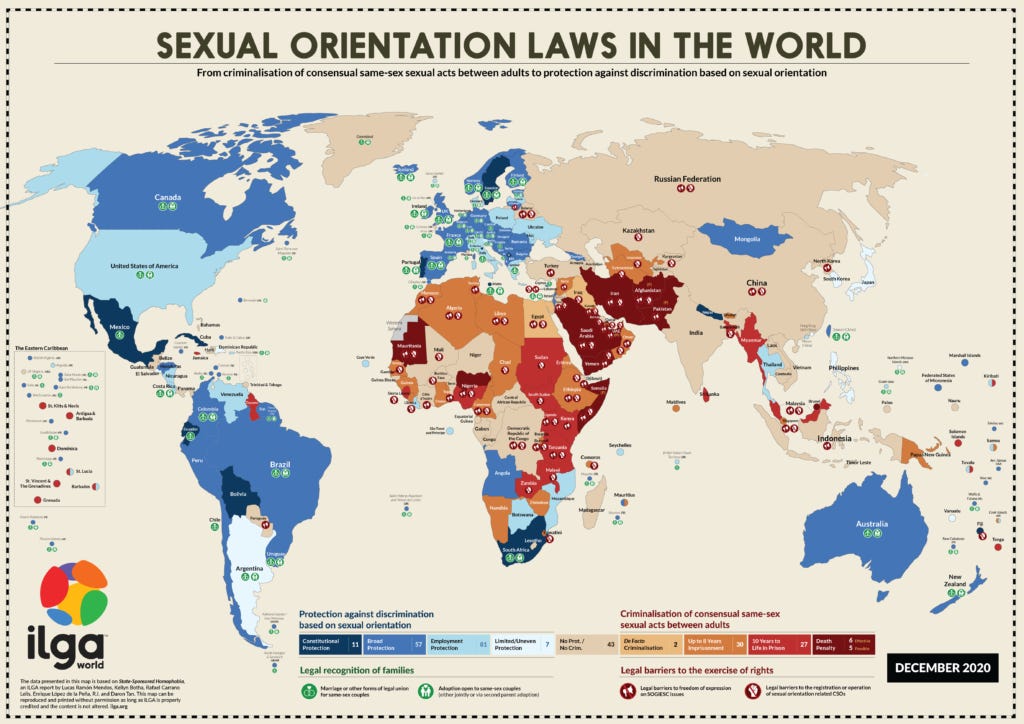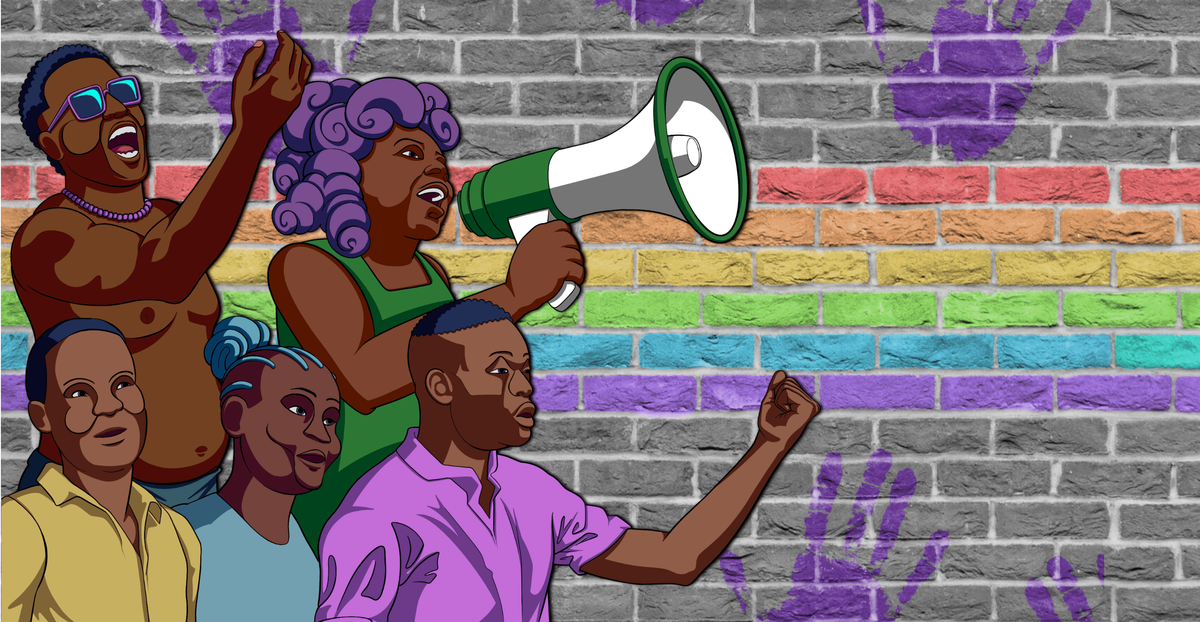This week we’re bringing you an excerpt from a story covered by our friends over at Unbias The News. Click here to read the full article, and scroll to the bottom of this newsletter to find out about the latest opportunities for journalists from Unbias The News.
Visibility as Resistance: How Zimbabwe’s LGBTQI+ Community Fights Queerphobia on Social Media
Written by Joyline Maenzanise, Edited by Purple Romero, Illustration by Walker Gawande
Originally published: 12 October 2021A trans man sharing his life as a parent. A “rainbow” love story over a span of 10 years. Queer people and the challenges they face in seeking employment. Bisexual women and their joys, fears.
A whole spectrum of stories about the Zimbabwean LGBTQI+ (lesbian, gay, bisexual, transgender, queer, intersex) told by them, for them.
This is what the YouTube channel of Purple Hand Africa, an organization established in 2019, offers the online audience in Zimbabwe and beyond. The brainchild of Trevor Molife, the organization’s name is borrowed from and pays homage to the San Francisco protest that occurred in 1969.
There, protesters who had purple paint poured onto them retaliated by dipping their hands into it and leaving handprints on the walls of the building housing the media publication, The Examiner, which wrote homophobic articles.
“This is the same mark that I need to make in Zimbabwe,” Trevor said during a Kanthari presentation in 2018.
He was referring to the symbolism of this retaliation which inspired him to relocate to Zimbabwe from South Africa and stand up against queerphobia.
Purple Hand though is just one of the new social media initiatives by queer Zimbabweans that enable them to tell and own their stories, a form of digital activism against the prejudiced reporting of modern-day Examiners.
Zimbabwe’s laws against queerness
For many years, stories published by some local outlets have reinforced the narrative that ridiculed, pathologized, demonized and othered the country’s LGBTQI+ community.
“…The detestable practice of homosexuality is only amenable to communities and cultures in the West. Gay practices are not human rights but Western rights. Western countries should not force other nationalities to accept homosexuality.” This is an excerpt from a 2013 article published in The Herald, a state-owned publication.
In an editorial in July 2021, however, the same publication referred to the LGBTQI community sans such negative depiction, though there is still a lingering distrust and worry among the LGBTQI Zimbabweans about its capacity and willingness to write about them in a positive light.
Reclaiming power over their narrative is important for queer Zimbabweans who have long endured state-sanctioned bigotry that seeks to silence and invisibilize the community, while punishing those who dare to openly exist.
Zimbabwe is one of 34 African countries that continue to uphold anti-LGBQTI+ laws even if its former President Robert Mugabe – who was infamous for hate speech against gay people and women – stepped down in 2017.

Section 74 of the country’s Criminal Law, Codification and Reform Act outlaws sex between consenting men. According to this colonial relic, which the country insists on upholding while denouncing homosexuality as a Western import, men accused of exercising agency over their sexuality are “liable to a fine, imprisonment for a period not exceeding one year or both.”
Zimbabwe’s 2013 Constitution prohibits same-gender marriage. It was signed into law by Robert Mugabe.
These laws continue to be championed or go uncontested by politicians. Unfortunately, there are also some Zimbabweans who want freedom from oppression, but remain unmoved by or actively participate in the continued criminalization of the LGBTQI+ community.
From podcasts to Facebook
Using various online platforms, queer Zimbabweans are able to quickly and easily raise awareness of their experiences and highlight the need for their freedom. They not only challenge cisheteronormativity but also confront cyberbullies who use threats of violence since too often, queer visibility tends to embolden their hatred.
“Social Media offers a relatively safe space to tackle issues not usually spoken about in the mainstream media,” Trevor tells Unbias the News.
As part of its advocacy, the Purple Hand Africa team travels to different parts of Zimbabwe and chats with queer folks about their experiences. The stories shared are documented on YouTube where the organization has set up a channel that can be accessed by anyone.
Read the rest of the story on Unbias The News.
If you’re keen to pitch a story to Unbias The News, check out their call for applications:
They’re also looking for illustrators to collaborate with:
You can also join Hostwire, where members get alerts about trainings and journalism opportunities in general.
Thanks for reading, and we’ll be back in your inbox soon!

